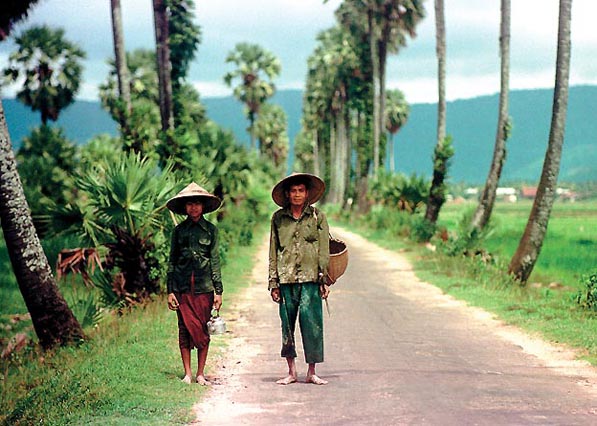Port Project Raises Concerns about Rights, Environment

“The construction of a deep-sea port and industrial zone on the Tenasserim coast will severely affect the biodiversity along the coastal region,” said a Burmese marine biologist from the Marine Science Association of Myanmar, speaking on condition of anonymity.
Another scientist who has studied the the region's unique, life-supporting ecosystems echoed these concerns: “Mangrove forest and coral reef are very important places for a wide range for aquatic species. They are necessary environments for the life and reproduction of those species. Without them, aquatic animals can no longer exist. As a result, biodiversity will be ruined.”
Especially sensitive, he said, are the 601 species of coral reefs that have reportedly been found in the Mergui archipelago, which comprises over 800 islands.
Referring to the lack of strong regulations and good governance to protect the environment, an official from the Forest Resource Environment Development and Conservation Association (FREDA), a leading Burmese environmental NGO based in Rangoon, also warned of long-term costs.
“Fuel wastes from ships and petrochemical waste from the factories will become an environmental problem that is quite difficult to tackle,” the official said.
None of this is likely to stop the Tavoy project from going ahead, however. As Matthew Smith, a senior consultant at EarthRights International (ERI), an international environmental and human rights group, has noted, “The well-being of the population and the environment simply haven't been prioritized under military rule, especially when business interests come into play.”
This was amply illustrated recently when a court in Kachin state awarded villagers evicted from the Hugawng Valley Tiger Reserve just 80,000 kyat ($96) per acre for land confiscated by the Yuzana Company, which in 2006 was granted 200,000 acres in the reserve to establish sugarcane and tapioca plantations. This was the same amount that was originally offered to them by Yuzana, which is owned by Htay Myint, who is on the US sanctions blacklist and soon to become a sitting member of Burma's Parliament after winning a seat in Tenasserim Division as a candidate for the regime-backed Union Solidarity and Development Party.
Many observers believe, however, that it is precisely this disregard for environmental and human rights protections that makes the Tavoy project so appealing to Thai investors. They note that the shift to Burma comes as Thailand imposes stricter environmental regulations in the wake of findings that residents of Map Ta Phut in Rayong Province had an increased risk of cancer due to air and groundwater pollution from the country's largest industrial port.
However, shifting to Burma carries its own dangers, say activists.
“Investors face serious material and reputational risks, despite the regime's propaganda, and what Asian companies investing in these projects aren't thinking about is the possibility of serious liabilities in courts of law for complicity in abuses in Burma,” said ERI's Matthew Smith.
Ba Thant in Tavoy and Aung Thet Wine in Rangoon contributed to this report.
« previous 1 | 2 | 3 |
|
||
|
||
|
||
|
||
- 'My Wife Died From Police Abuse,' Says Husband
- US Says Observer Conditions Don't Meet Int'l Standards
- 159 Observers to Monitor Burma Election
- Govt to Address Breaches of SSA-South Ceasefire: Aung Min
- Burma Investors Pin Hopes on Seminal Sunday
- Malaysia PM Leads 50-Strong Delegation to Burma
- US Congress to Assess Burma's Political Prisoner Issue
- Rangoon Woman in Police Station Death Plunge
- Burmese Legal System Remains Tool of Govt: AHRC
- Burmese Army Chief Defends Political Role
